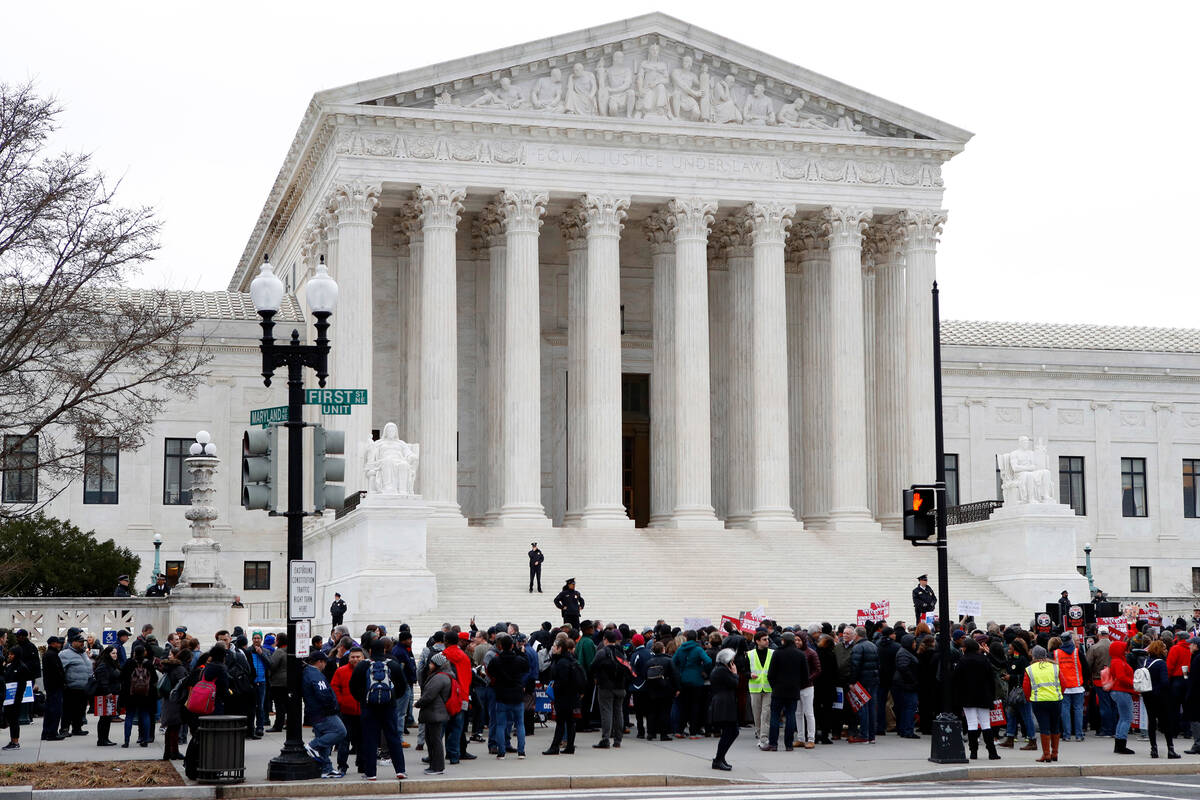EDITORIAL: As court begins new term, expect leftist attacks to continue
Expect the Democratic assault on the U.S. Supreme Court to intensify in the coming months as the justices convene on Monday for their new term.
Progressives have bristled for more than a century about the Constitution’s limitations on an activist federal government and have consistently sought to pressure the judiciary to bend or even ignore these boundaries in order to promote a more powerful state. The fact that many of the current justices seem disinclined to abrogate their duty to check the legislative and executive branches is a source of great frustration for the left, from which springs aggressive attacks on the institution’s integrity and partisan efforts to pack the court.
The court’s decision overturning Roe v. Wade has energized its vocal critics. But popular opinion is a poor substitute for judicial deliberation, and this term promises to be equally controversial as the last:
■ The justices will hear at least two cases involving race-based admission policies in higher education, including a challenge to Harvard’s practice of limiting Asian American enrollment. Is more discrimination a proper means of remedying past discrimination?
■ The court will consider a case involving an Idaho couple’s decadeslong quest to build a home on their own property despite efforts by the Environmental Protection Agency to scuttle the project as a danger to area wetlands. This case presents another chance to check bureaucratic power and advance private property rights.
■ A challenge to a California law, passed by voters, that limits the importation of out-of-state pork products from producers who fail to adhere to standards set by the Golden State could breathe new life into the commerce clause, which prohibits states from regulating interstate commerce.
■ The justices will decide two cases — one involving the Federal Trade Commission, the other the Securities and Exchange Commission — involving judicial review procedures of agency actions and structures. These suits could potentially strengthen separation of powers protections.
■ A free-speech case features a web-designer who objects to being forced to create websites for same-sex weddings. How much power does the state have to compel behavior in the name of protecting “marginalized” groups?
The new term offers the justices a number of opportunities to protect the Bill of Rights and advance liberty, which is now a four-letter word in leftist circles. Ultimately, the nation will be well-served by a Supreme Court that respects our founding principles and recognizes the vital limitations the Constitution imposes on the power of the federal government.






















